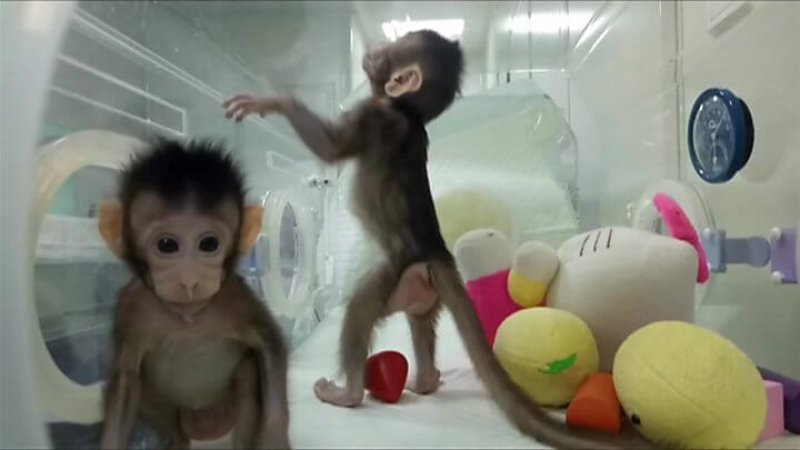Chinese researchers have cloned five gene-edited monkeys with a host of genetic disease symptoms, according to two scientific papers published [January 23].
The researchers say they want to use the gene-edited macaques for biomedical research; basically, they hope that engineering sick primates will reduce the total number of macaques used in research around the world. But their experiment is a minefield of ethical quandaries—and makes you wonder whether the potential benefits to science are enough to warrant all of the harm to these monkeys.
…
This research combines a ton of ethical issues into one package, from those surrounding animal rights to cloning to gene editing. As bioethicist Carolyn Neuhaus from The Hastings Center summarized her reaction to the announcement: “Whoa, this is a doozy.”
“It’s very clear that these monkeys are seen as tools,” she explained. The team of scientists behind the new announcement tout the monkeys’ suffering—anxiety, depression, and “schizophrenia-like behaviors”—as a success. She noted that the researchers didn’t have scientific hypothesis or treatment they were attempting to prove or disprove.
…
That’s not to say we shouldn’t genetically edit monkeys, said Neuhaus. But, she said, “if I were on an ethics review committee, I would be very hesitant to approve [this research] because of the incredible amount of harm to the animals.”
Read full, original post: China’s Latest Cloned-Monkey Experiment Is an Ethical Mess































